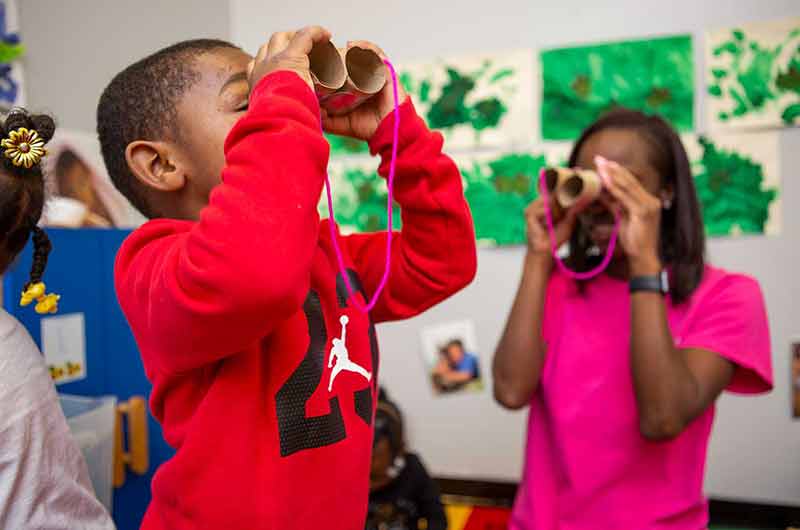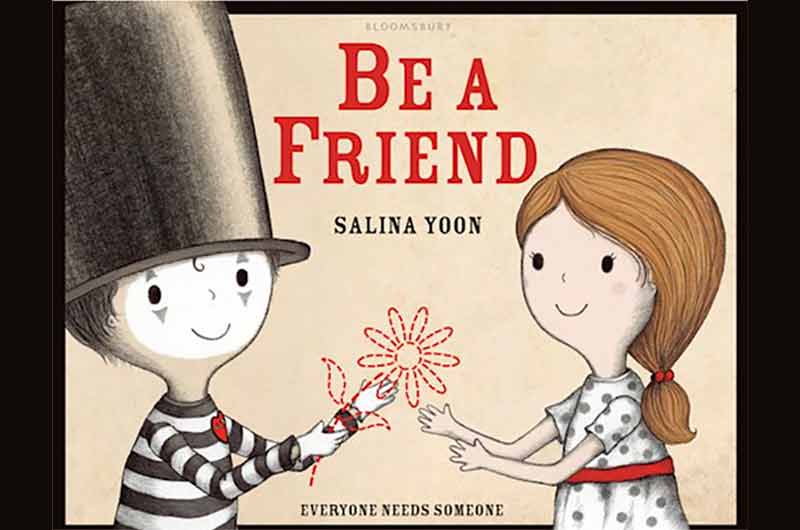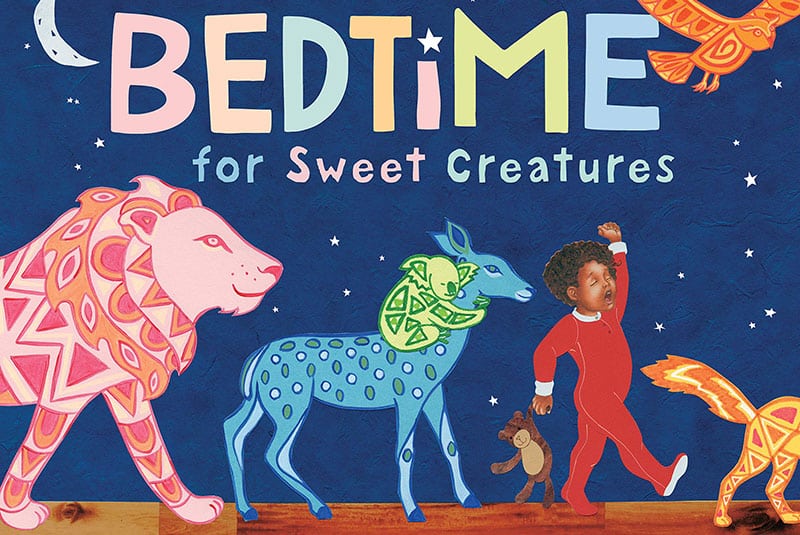THINK
Imitation and Symbolic Representation
Critical skills preschoolers can use to express themselves and engage in pretend play

At A Glance
Preschoolers are learning a lot about the world around them. They do this by observing and, later, imitating our actions, gestures, sounds, and words. Preschoolers are also beginning to understand that symbols hold meaning and represent ideas. While imitation and symbolic representation are slightly different, we can support them together because they share a key component: pretend play! Pretend play provides lots of opportunities for imitation (such as playing “house” or “school”) and symbolic thought (like using pretend food). Join in the play and follow children’s lead as they think symbolically about the world around them!
What It Looks Like
A quick glance at ways you can support preschoolers' imitation and symbolic representation
Participate in Play
Model and Narrate Pretend Play
Encourage Use of Props
Use objects that are exact replicas to get children involved in pretend play. Describe and demonstrate what objects are and can do, like this educator does.
SUPPORTING THINKING SKILLS THROUGH BOOKS
Be a Friend
Written and illustrated by Salina Yoon, this book tells the experience of a boy who connects to the world and others by showing, instead of speaking.


SUPPORTING THINKING SKILLS THROUGH BOOKS
Bedtime for Sweet Creatures
Written by Nikki Grimes and illustrated by Elizabeth Zunon, this book is about a child who goes through the same emotions and actions as different animals preparing for sleep.
FAMILY CONNECTION
Connecting Home Experiences with Play
This video from the Center for Early Childhood Education (CECE) at Eastern Connecticut State University shares strategies for planning and supporting dramatic play with children’s personal and home experiences in mind.
SUPPORTING PLAY
Responsive Play Interactions
Play has incredible benefits for young children with autism or other disabilities. This article from Vanderbilt University shares five strategies you can use to support responsive play interactions.
Activity Cards for Preschool Classrooms
Part of the STREAMin3 curriculum, these activity cards provide simple and fun ways to support children's imitation and symbolic representation skills

It Looks Like…
Take time to look up at the clouds and name objects or shapes they look like.

Let's Pretend
Encourage children to move their bodies as they pretend to be different animals or objects.

What Can it Be?
Get children to think outside the box and come up with new ways to use familiar objects.

Symbol Sightings
Go on a symbols hunt by looking for signs or logos with shapes and letters.
Get Our Resource Guide
Includes questions and activities to guide your use of the videos, book suggestions, and activity cards featured for each of the Core Skills